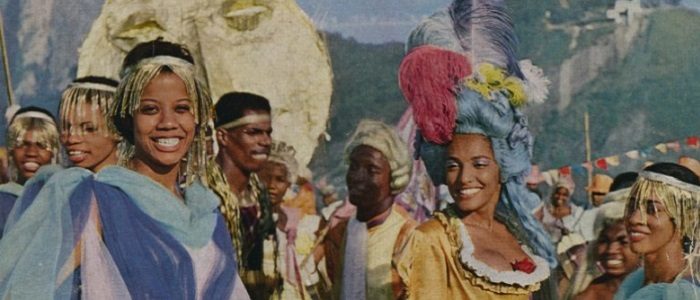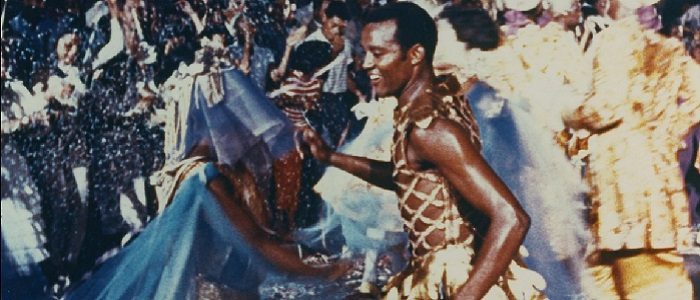In his autobiography, Dreams From My Father, Barack Obama recounts a spell studying at Columbia University in New York during the early 1980s. “One evening, while thumbing through the Village Voice, my mother’s eyes lit on an advertisement for a movie, Black Orpheus, that was showing downtown,” he wrote. Directed by Marcel Camus, Black Orpheus is a 1959 retelling of the Orpheus and Eurydice myth set during the Rio carnival. It won a slew of prestigious awards – from the Palme d’Or at Cannes and the Oscar for Best Foreign Language Film.

Obama, though, was not convinced. It caused him to question his relationship with his white mother, Ann. “I suddenly realized that the depiction of the childlike blacks I was now seeing on the screen, the reverse image of Conrad’s dark savages, was what my mother had carried with her to Hawaii all those years before, a reflection of the simple fantasies that had been forbidden to a white, middle-class girl from Kansas, the promise of another life: warm, sensual, exotic, different.”

It is possible Obama was being too harsh on Camus’ film. There is much that is commendable here. It is a truly universal film: French-made, set in Brazil, based on an ancient Greek myth. Breno Mello makes a virile Orfeo and Marpessa Dawn as the melancholic Eurydice who is pursued by a mysterious figure in a skeleton costume who might possibly be Death himself. Then there is the wild electricity of the Carnival itself, which is really at the heart of Camus’ film – the uncontrollable pulse of the music, the exuberant and fluid movement, the riot of colours. In many respects, it is an inspired reinterpretation of the Underworld. The soundtrack, by Antonio Carlos Jobim, Luiz Bonfá and Joao Gilberto, helped popularize the bossa nova, while it’s depiction of Latin American favelas surely influenced 2002’s City Of God and more recently, Arcade Fire sampled Black Orpheus for “Afterlife” from their Reflektor album.
Michael Bonner
Criterion Disc Features:
– New, restored high-definition digital transfer, with uncompressed monaural soundtrack on the Blu-ray edition
– Archival interviews with director Marcel Camus and actress Marpessa Dawn
– New video interviews with Brazilian cinema scholar Robert Stam, jazz historian Gary Giddins, and Brazilian author Ruy Castro
– Looking for “Black Orpheus,” a French documentary about Black Orpheus’s cultural and musical roots and its resonance in Brazil today
– Theatrical trailer
– Optional English-dubbed soundtrack
– New and improved English subtitle translation
– A booklet featuring a new essay by film critic Michael Atkinson


